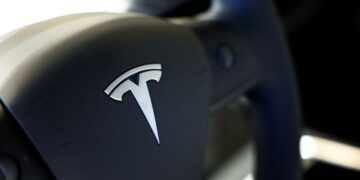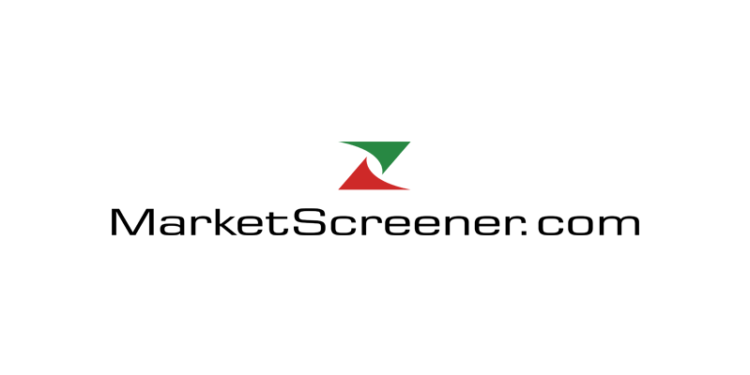By Jiahui Huang, Kimberley Kao and Sherry Qin
Asian tech hardware stocks broadly rose after the Trump administration exempted tariffs on semiconductor equipment, smartphones and other electronics, despite administration officials saying that these tech products would face their own levies.
China’s largest chip maker, SMIC, was 0.5% higher in Hong Kong afternoon trading Monday and Hua Hong Semiconductor climbed 3.05%. Japanese chip-making equipment manufacturer Tokyo Electron rose 2.4%, while South Korean memory-chip maker Samsung Electronics gained 1.8%. Malaysian semiconductor players Inari Amertron and Unisem (M), rose 6.6% and 3.0%, respectively.
Shares of Apple suppliers listed in Asia also advanced. Taiwan’s Largan Precision was up 5.2%, and Foxconn Technology rose 3.0%. Shenzhen-listed GoerTek added 0.8%. In Hong Kong, BYD Electronic International and Sunny Optical Technology rose 2.3% and 0.2%, respectively. South Korea’s LG Innotek gained 6.2%.
PC makers rallied, too, with Lenovo Group increasing 3.4% and Quanta Computer jumping 5.8%.
The gains came after a notice from U.S. Customs and Border Protection posted late Friday said computers, tablets, Apple watches, computer monitors, semiconductor equipment and other electronics were exempt from many tariffs on Chinese products and a 10% tariff on all U.S. imports. That was despite administration officials later saying that these tech products would soon face separate levies as part of an investigation into semiconductors.
Analysts largely viewed the development as a small positive after a week of tariff chaos that caused financial markets to suffer one of their most tumultuous weeks in years.
“The revisions significantly reduce the value of U.S. imports from emerging Asian economies that are subject to reciprocal tariffs,” Barclays analysts said in a note. Nomura estimated that 16.3% of China’s exports to the U.S. are now exempt from the reciprocal tariffs.
Apple suppliers stand to be the biggest beneficiaries of the policy exemptions, as China accounts for around 90% of iPhone assembly capacity and 80% for iPads, Citi analysts wrote in a note. The U.S. tech giant was one of the companies hit hardest last week after Trump raised tariffs on Chinese goods to 145%.
The move could give Apple “some breathing room,” Wedbush analysts led by Dan Ives wrote in a note. It could also give China space to negotiate, given that “it does not have to automatically start passing massive price increases to U.S. consumers,” they said.
Analysts at Nomura said the latest exemption might trigger a significant front-loading of exports for certain products in the coming weeks and months.
Some analysts said they saw the possibility of other sectors getting a break from Trump tariffs.
“These exemptions will presumably not be the last either,” said Paul Ashworth, chief North America economist at Capital Economics. Apple Chief Executive Tim Cook’s success in getting iPhones exempted will likely boost the lobbying by companies in other sectors, he said.
Still, investors are bracing for more twists and turns in Trump’s tariff policies in the coming days.
“NOBODY is getting ‘off the hook,'” Trump said in a recent post on his Truth Social platform. “We are taking a look at Semiconductors and the WHOLE ELECTRONICS SUPPLY CHAIN in the upcoming National Security Tariff Investigations.”
Write to Jiahui Huang at [email protected], Kimberley Kao at [email protected] and Sherry Qin at [email protected]
(END) Dow Jones Newswires
04-14-25 0213ET

















